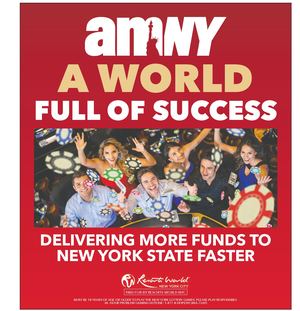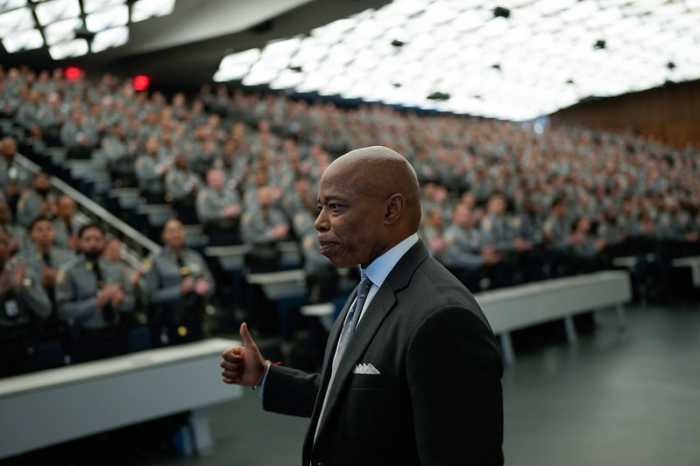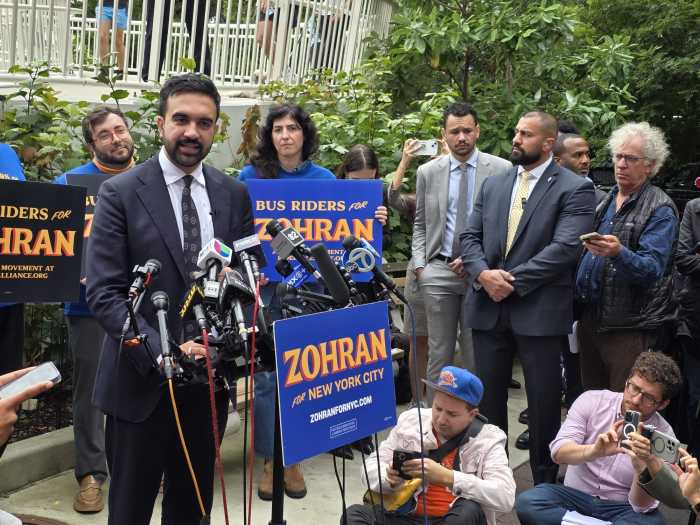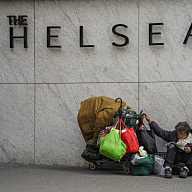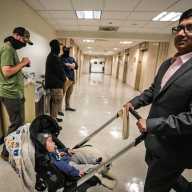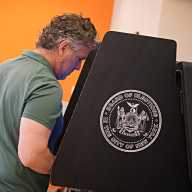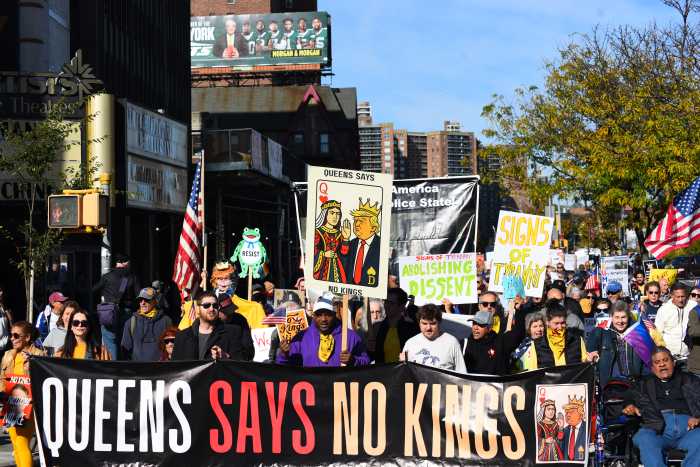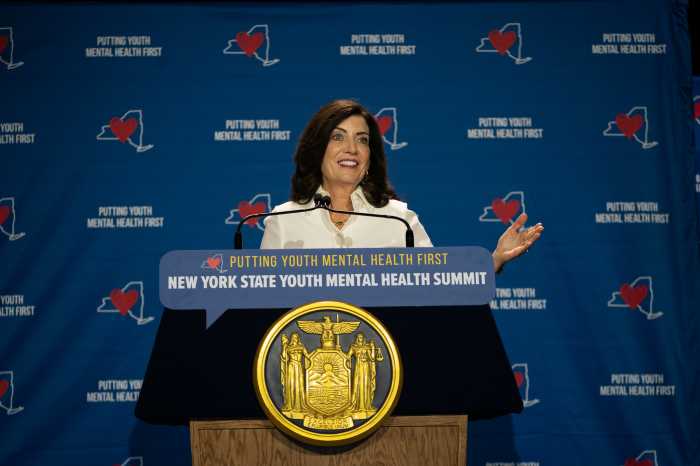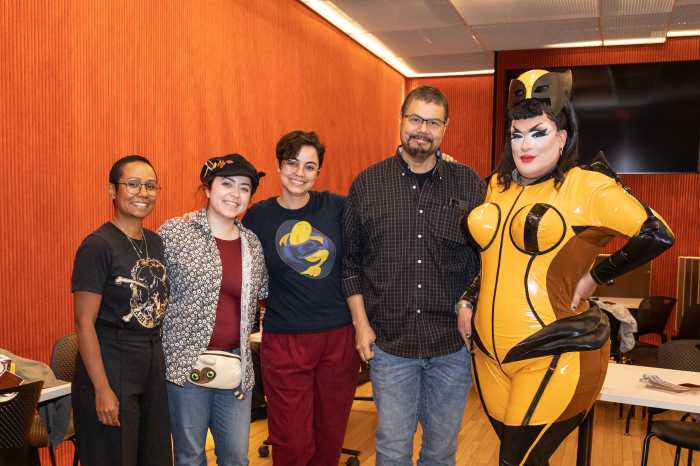When the United Federation of Teachers (UFT) opened the doors to its NYC Childcare Navigator to New Yorkers earlier this month, it could have been a beacon of hope for parents across the city. The platform gives users a list of 12,000 affordable child care programs, something many parents have been in deep need of for many years. The launch has proved to be successful.
“It is easy, it is accessible,” said Dana Levin-Robinson, CEO of Upfront, which builds childcare databases. “It shows where they can get financial support. Families have been exhausted from not having this and they are incredibly grateful.”
Levin-Robinson said the platform has attracted thousands since going public on October 8th. Before, it was only for UFT employees. But according to UFT President Michael Mulgrew in a press release, the platform was so effective, it was decided to share it with New York parents, who have been in need of affordable child care for a long time.
“Every family in New York deserves childcare without obstacles,” Allison Lew, a mother herself and community organizer with New Yorkers United for Child Care, said in the same press release. “Now let’s keep building on this momentum so every child in New York has access to free, high-quality care, and every parent can afford to raise their family in the city they love.”
If giving New Yorkers access to NYC Childcare Navigator showed anything, it is that the increasing demand for affordable childcare is growing louder with each passing year. Now, with the mayoral election quickly approaching, calls for the next mayor to make this issue a top priority are gaining momentum.
“Most in New York know that childcare is at a breaking point,” says Amanda Reeves Fellner, an assistant professor at Teachers College, Columbia University, and a faculty co-director of the Rita Gold Center, the university’s early childhood education center. “Anyone who comes to the mayoral position should prioritize it. A lot of families are leaving, and salaries are not keeping up with the cost of living.”
The high cost of caring for children
Back in January, Comptroller Brad Lander released a report that found the cost of childcare in 2024 had significantly increased since 2019. Center-based care went up $26,000, an increase of 43 percent during that time period. Family-based care has also seen prices go up to $18,200, an increase of 79 percent since 2019. The report also estimated that in order to afford childcare for even one two-year-old in New York, families would have to earn $334,000, which is four times the median income across the city.
The number of children aged three and younger has declined by 19.3 percent, many of them coming from middle-class families, though the report acknowledges that there can be many reasons why families are leaving the city. Over the summer, the Fiscal Policy Institute, a left-wing think tank, found that families with children ages 6 or younger are twice as likely to move out of the city as those without children.
Finally, the Comptroller’s report said universal childcare would increase family income levels if they weren’t spending so much on childcare, and employers would see more productivity and financial gains if parents were not weighed down by the cost of childcare.
Even the Fiscal Policy Institute points out the economic benefits of universal childcare.
“New York State has the economic capacity to both fill the gaps left by federal cuts and invest in universal childcare,” said Andrew Perry, the Director of Fiscal Research. “Which will help the state retain families and drive long-term economic growth. Every dollar spent on childcare strengthens New York’s labor force, builds our tax base, and makes the state a more affordable and attractive place to live and work.”
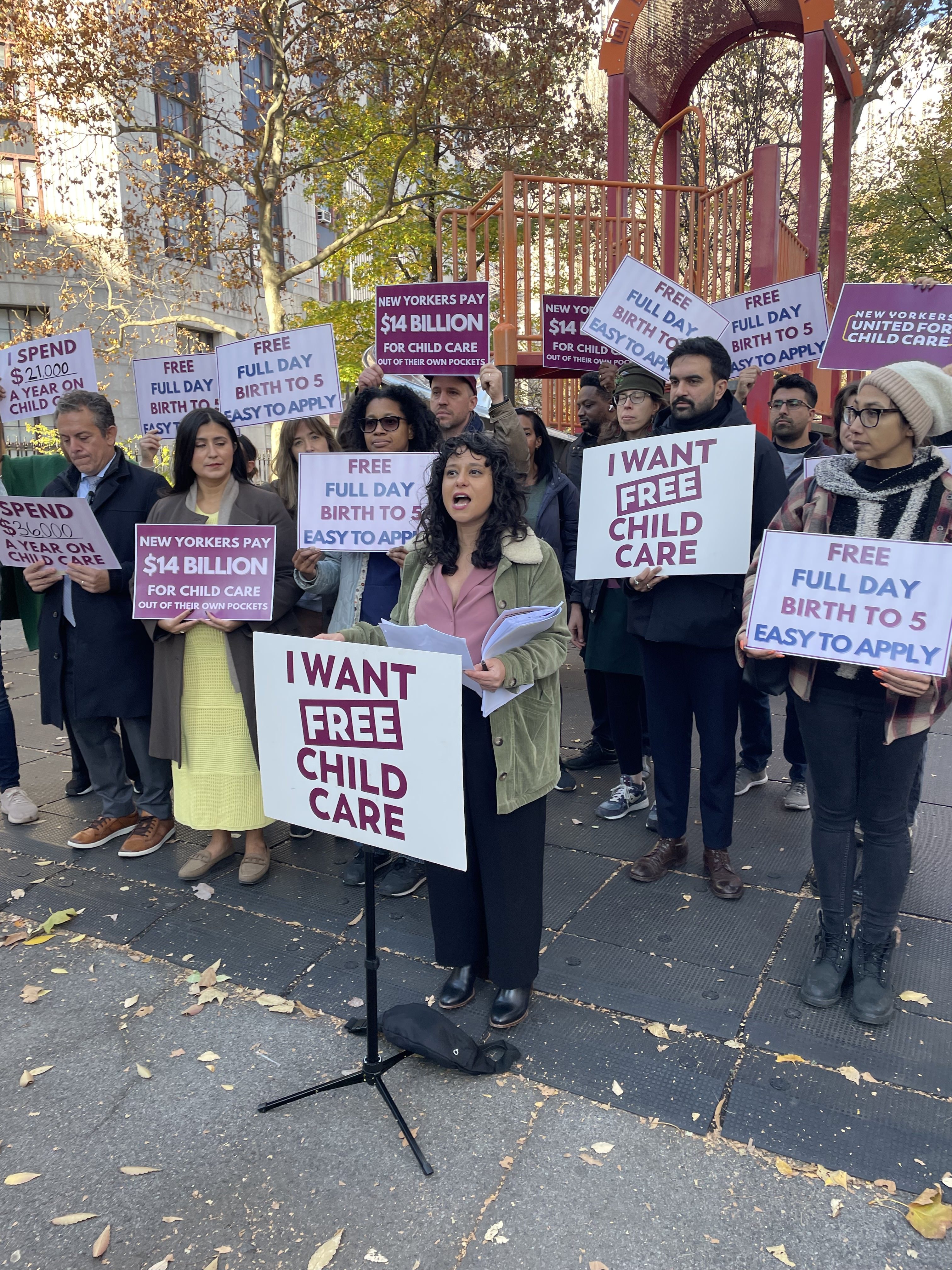
Campaigns build up
In early September, the national nonprofit, Moms First launched a campaign calling for mayoral candidates to make childcare their top priority. A petition was also launched, urging the next mayor to invest in the issue during his first 100 days in office and hold him accountable to that investment. This campaign has allowed the CEO and Founder of Moms First, Reshma Saujani, to meet with leaders of both the city and state. She has met with various members of the City Council, including Speaker Adrienne Adams, and even with Governor Kathy Hochul, since the taxes needed for universal childcare would need to come from Albany’s executive budget.
“It’s one thing to run on child care,” Saujani says. “It’s another thing to actually get it done. We have kind of built a movement of moms and parents and business leaders and other elected officials that are going to hold whoever wins the next mayoral race accountable to fulfilling that commitment in the first 100 days.”
Also hitting the ground is New Yorkers United for Child Care (NYUC). Over the past two years, the organization has been active in encouraging lawmakers to establish universal childcare. Among the work the group has done is successfully urge Mayor Eric Adams to reverse budget cuts to 3K programs and even secure more free full days for 3K and PreK programs citywide. In 2024, NYUC created a five-year roadmap plan for universal public child care, something they encourage supporters to alert their representatives about. NYUC is now petitioning to expand free childcare to two-year-olds.
The organization even conducts research on this issue and found that the city suffered economic loss, at about $23 billion, in 2022 due to parents either leaving the workforce or cutting back their hours because of childcare affordability.
“Every New Yorker deserves access to free, universal child care,” says Rebecca Bailin, NYUC’s Executive Director. “We’re proud of our 10,000+ members for pushing this issue into the center of the Mayoral race and winning childcare commitments from every major candidate in the primary. From collecting signatures at playgrounds to calling their council members, parents mobilized, organized, and vocalized — and the city’s elected officials and future leaders are clearly listening.”
Moms First is one of 30 organizations supporting NYUC, as is Alliance for Quality Education (AQE). The statewide organization has been campaigning for universal childcare since 2018, and its work has picked up since the COVID-19 pandemic, a time when the workforce shrank and childcare programs closed due to fewer clientele, which also led to fewer places for parents to place their children.
Marina Marcou-O’Malley, AQE’s Co-Executive Director, also points out an issue these program face: paying their staff. Marcou-O’Malley says most programs only pay their employees minimum wage, leading to a high turnover rate.
“It’s a very expensive service,” Marcou-O’Malley says. “Programs are actually not making money. There’s a lot of safety regulations, for very good reasons, to make sure that kids are safe, so the ratios are as low as they should be. There’s a whole bunch of other things that are part of that system that require funding. And because there’s not enough of them, prices are higher.”
Can it be done?
As strong as the call is for universal childcare, some wonder about how it can be made possible.
Ana Champney, the Vice President for Research at the Citizens Budget Commission, explains that with the federal cuts to Medicare and SNAP benefits coming soon, the state will then have to fund those needs.
“It’s a pretty tall order,” Champney says. “New York needs to make it a priority, yes. But it takes time to get all the pieces in order. And we need to seriously look at all the spending the city does. What should the city do? There are some competing priorities.”
Even Professor Fellner points out the importance of taking a closer look at how to make universal childcare come into effect.
“When it comes to logistics,” she says. “We need to ask, how do we get there? What does it actually look like? The logistics may be more complex.”
What about having more businesses create their own childcare centers, much like Goldman Sachs, Columbia University, Bellevue Hospital, and 17 of the City University of New York’s 26 campuses? Professor Fellner explains that it can be expensive for a business to have an on-site childcare center, along with the many city regulations to add to the complexity.
Which mayoral candidate?
Democratic candidate Zohran Mamdani has openly campaigned about this issue, and even spoke at a press conference when NYUC announced its five-year roadmap plan last November.
In a statement to amNewYork, Mamdani’s campaign spokesperson, Dora Pekec, said, “Zohran Mamdani knows that if we refuse to pursue bold solutions and simply accept the status quo, more young families will be forced to leave the city they love because they simply can’t afford to live here. That’s why delivering universal childcare is one of Zohran’s top agenda items, ensuring every family can raise their kids here and share the promise of New York City with them.”
On the Independent ticket, Andrew Cuomo has on his campaign website that he would “guarantee universal 3-K and increase childcare options”. On an Instagram post dated March 15th, Cuomo further explains his plan by having new childcare centers built and expanding the industry’s workforce. He also would make Pre-K “truly universal” and increase subsidies for “care for children under three”.
Curtis Sliwa, the Republican candidate, appears not to have made universal childcare a focus of his campaign. It is not mentioned on his website and his campaign did not respond to amNewYork’s request for a statement on the issue. However, Gothamist reported that Sliwa acknowledges just how expensive childcare is.
All in this together
Whoever wins will have to deal with Albany and the executive budget, which will be first presented in January, a few short weeks after the new mayor is sworn in on January 1st.
A spokesperson claims Governor Hochul is keen on universal childcare. “As NY’s first mom-governor, Governor Hochul has prioritized making child care more affordable and accessible for working families, charting a bold path forward for universally affordable child care for the first time in New York State history,” a statement from the Governor’s office says.
“Since taking office, the Governor has delivered the largest investment in child care in state history and expanded access to care statewide, including putting nearly 170,000 kids in child care seats that are capped at $15 per week for most families, improving the child care workforce and increasing capital funding for providers. The Governor looks forward to working with partners inside and outside of government to create a plan of action for universally affordable child care statewide.”
But no matter who wins on Nov. 4, Moms First and NYUC say they will work to ensure the next mayor makes the much-needed changes to universal childcare. Saujani believes the next mayor has no choice but to focus on universal childcare.
“Most families in New York City, are one financial event from financial ruin,” Saujani says. “I think our politicians and elected officials have no option but to deliver for New York City families, and if they don’t, they’ll pay the price in the ballot box.”
